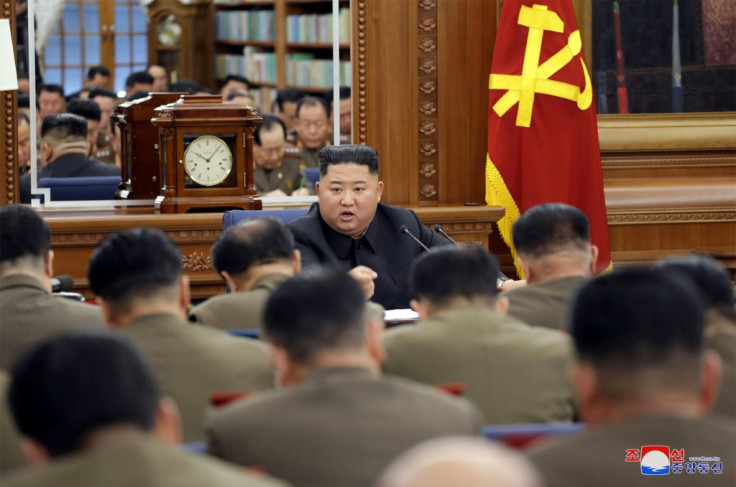North Korea News: China, Japan, South Korea Meet As Pyongyang Threatens 'Christmas Gift' For US

KEY POINTS
- East Asian leaders met Tuesday in China to discuss how to deal with North Korea's military capabilities
- North Korea could be preparing a "Christmas gift" missile launch, which would threaten other East Asian nations
- North Korea and U.S. nuclear negotiations are stalled
Chinese Premier Li Keqiang, Japanese Prime Minister Shinzo Abe and South Korean President Moon Jae-in met Tuesday for a summit in the southwestern Chinese city of Chengdu in order to discuss how to deal with North Korea’s missile and nuclear programs.
Li said that the three nations believe “dialogue and consultation is the only effective way to solve the issues of the Korean Peninsula.”
“We three countries are willing to work together with the international community to solve the issue of Korean Peninsula in a political way,” Li said later in the day.
Both Abe and Moon have called for the U.S. and North Korea to continue negotiations on Pyongyang’s nuclear program.
North Korea has threatened a “Christmas gift” for the United States if there is no nuclear deal. North Korea wants sanctions to be taken off its economy, while the U.S. in exchange wants Pyongyang to pursue a path to denuclearization.
The “Christmas gift” could be an intercontinental missile launch (ICBM), a move meant to coerce Washington back to the negotiating table. But the move could also cause South Korea and Japan to worry about the military threat that North Korea poses in the East Asia region.
North Korea had recently threatened Japan with a ballistic missile and has shot several projectiles into the Sea of Japan this year.
The last time U.S. and North Korean negotiators met to discuss the nuclear issue was in October, but talks fell through on the first day of negotiations. President Trump also met North Korean leader Kim Jong Un in Vietnam and Singapore over the last two years to discuss a nuclear deal, but no concrete agreement had been achieved.
Pyongyang has likely added more weapons to its nuclear arsenal during the ongoing negotiations. SIegfried Hecker, a nuclear scientist at Stanford University, told the Wall Street Journal in June that North Korea is likely capable of producing six to seven nuclear bombs a year.
North Korea and South Korea are still technically at war with each other, as the Korean War ended in 1953 with a truce, not a peace treaty.
© Copyright IBTimes 2024. All rights reserved.




















